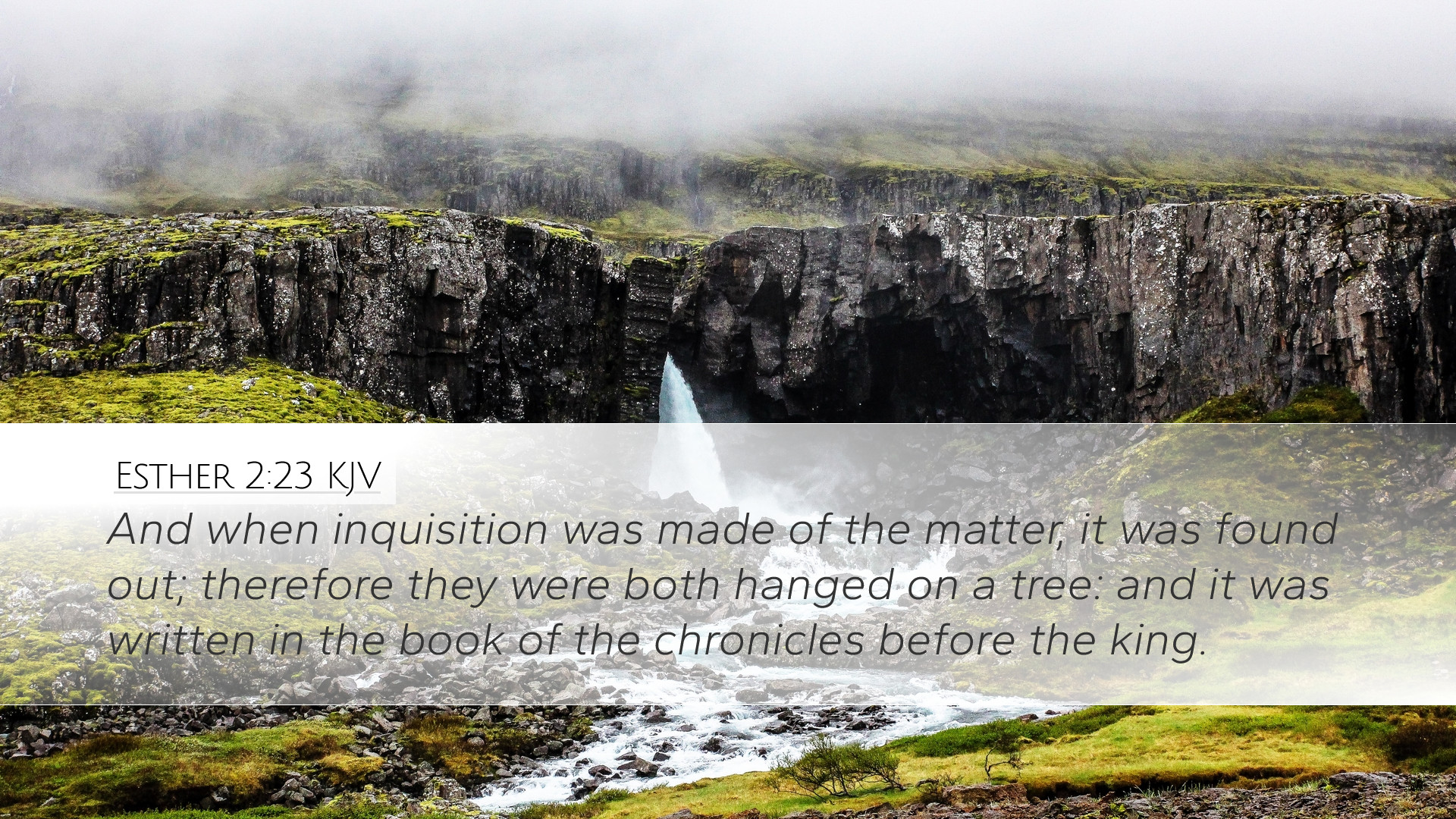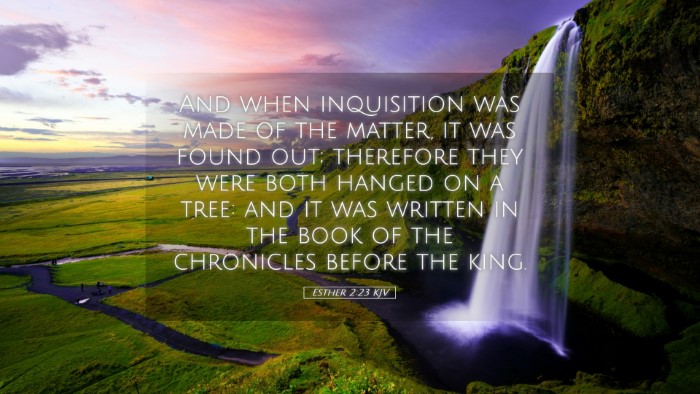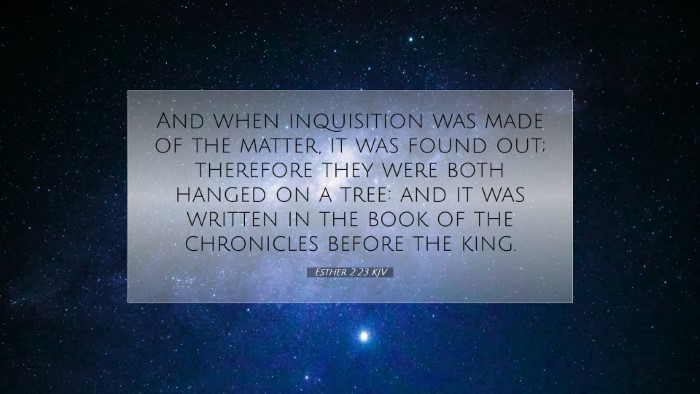Old Testament
Genesis Exodus Leviticus Numbers Deuteronomy Joshua Judges Ruth 1 Samuel 2 Samuel 1 Kings 2 Kings 1 Chronicles 2 Chronicles Ezra Nehemiah Esther Job Psalms Proverbs Ecclesiastes Song of Solomon Isaiah Jeremiah Lamentations Ezekiel Daniel Hosea Joel Amos Obadiah Jonah Micah Nahum Habakkuk Zephaniah Haggai Zechariah MalachiEsther 2:23
Esther 2:23 KJV
And when inquisition was made of the matter, it was found out; therefore they were both hanged on a tree: and it was written in the book of the chronicles before the king.
Esther 2:23 Bible Commentary
Commentary on Esther 2:23
Verse Reference: Esther 2:23 - "And when inquiry was made into the matter, it was found out; therefore they were both hanged on a tree. And it was written in the book of the chronicles before the king."
Introduction to Esther 2:23
The narrative surrounding Esther unfolds with layers of providence, courage, and unfolding destiny. In this particular verse, we encounter a pivotal moment where justice is served. It provides crucial insights into the nature of authority, moral integrity, and divine oversight.
Contextual Background
The events of Esther occur during the Persian rule, where the Jewish people have been exiled. Esther, a Jewish maiden, becomes queen, and her story intertwines with that of Mordecai, her cousin. Understanding the socio-political environment of Persia is vital as it frames the significance of the events that unfold in this passage.
Analysis of Key Themes
-
Justice and Retribution
This verse highlights the swift action taken against those who sought to harm the king. The hanging of the two conspirators illustrates the serious nature of treason in the Persian court and reflects the theme of justice prevailing over malice.
-
Divine Providence
The providential hand of God is evident in Mordecai's discovery of the plot. This act not only saves the king's life but also sets the stage for later events where Esther's intercession becomes crucial. Biblical scholars note that moments such as these reveal God's sovereign plan at work behind the scenes.
-
Preservation of the Jewish People
The protection of the Persian king may appear as a small detail, yet it is significant given the overarching threat against the Jewish race. Mordecai's vigilance plays a vital role in the survival of his people amidst looming danger.
Commentary Insights
Matthew Henry's Perspective
Matthew Henry emphasizes the importance of this event in the unfolding story of Esther. He points out that Mordecai's act of exposing the plot is not merely a random occurrence but a planned event within God's design. Henry argues that God often uses seemingly insignificant individuals to carry out His larger will, highlighting God's ability to leverage ordinary events for extraordinary purposes.
Albert Barnes' Commentary
Albert Barnes focuses on the implications of justice and moral order. He notes that the execution of the two men serves as a reminder to those in authority of the importance of vigilance against treachery. Barnes argues that this event is not only about the preservation of life but also manifests the core values of loyalty and integrity in governance.
Adam Clarke's Observations
Adam Clarke provides a detailed exposition regarding the practice of hanging in ancient Persia. He explains that this form of execution served as both punishment and deterrent. Clarke emphasizes that the account affirms the consequences of wickedness and conspiracy against rightful authority, reinforcing the idea that divine justice prevails even in foreign lands.
Reflection and Application
Esther 2:23 invites readers to reflect on several important aspects:
-
The Importance of Vigilance:
Much like Mordecai, spiritual leaders and laypersons alike are called to remain alert to undercurrents of opposition, whether in personal lives or the church at large.
-
Trust in Divine Timing:
God's providence often unfolds gradually, yet it remains as sure as the events portrayed in Esther. Trusting God's timing may be challenging, but it is crucial in faith.
-
The Assurance of Justice:
The moral universe governed by God ensures that justice, though delayed, will always be realized. This reassurance can embolden believers in the face of adversity.
Conclusion
Esther 2:23 serves as a significant reminder of God's providential care for His people and the assurance of justice. This verse encapsulates essential attributes of God's character—His sovereignty, righteousness, and commitment to the unfolding narrative of redemption. As pastors, scholars, and students of the Word, an understanding of the implications of this passage will enrich our grasp of scripture and inspire a deeper reliance on God's unfailing promises.


